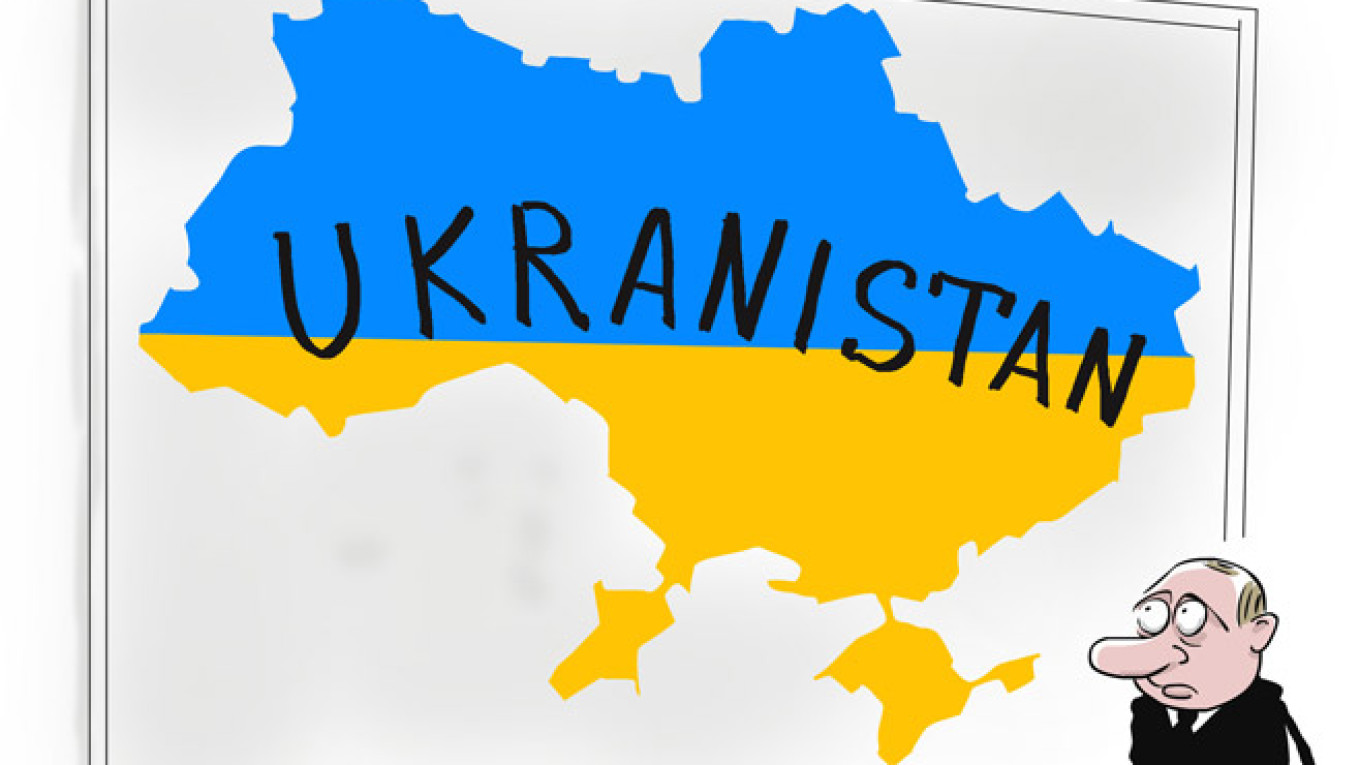The fighting in eastern Ukraine has, from its very first days, provoked intense speculation among Russian bloggers.
Who is supplying the separatists with arms and ammunition? Who is fighting? Who is commanding the military operation?
For many bloggers, the answer to the first question is easy. Despite periodic denials from the Russian authorities, it seems hard to believe that the sophisticated weaponry in the hands of the Donbass separatists — clearly seen in photos and videos — came solely from pilfered Ukrainian armories. Separatists have also been seen driving T-64 tanks, just days after Russia moved similar tanks to a base near the Ukrainian border according to NATO.
The second question is harder to answer. In contrast to Crimea, where the local population greeted the Russian troops with broad support, the reaction of the Donbass population has been very different.
Most of the ethnic Russians living in eastern Ukraine support the idea of joining Russia. But the population has been biding their time in showing full support. A local warlord in Donetsk, retired colonel Igor Girkin, complained, "Not even 1,000 men in the whole territory are willing to risk their lives on the front lines, where every day there is gunfire."
The separatist army, then, appears to be a truly international motley crew. There are Cossacks, members of radical nationalist groups, contract soldiers, Chechens and mercenaries from almost every Russian region.
Still, controversy rages over why these foreign volunteers are willing to fight and die to eastern Ukraine
The well-known journalist Olga Romanova recently wrote on Facebook: "Today in Ivanovo they buried a young man. I knew him — in April he married the daughter of my friends. He died at the Donetsk Airport. Four other young men from Ivanovo died with him. I asked his parents why he went there. Their reply was grotesque: 'He wanted to pay off some loans …'"
According to the Ukrainian Security Service, or SBU, mercenaries' pay strictly follows a price list: they get $1,000 for every Ukrainian officer they kill and $300 for every dead soldier. They are also paid for each day on the front lines.
Even less clear is who is commanding this mass of armed men. In Crimea, the operation was obviously under one command. But eastern Ukraine is more like Afghanistan. There are small fighting groups of 20 to 200 men. Each commander is acting independently.
And if they are indeed receiving orders from Russia, their chain of command is somewhat strange. The SBU intercepted a conversation between a major unit of separatists and their commander, who was in the southern Russian city of Rostov-on-Don. Their commander turned out to be a retired police sergeant who styled himself as a "Cossack general."
And just like in Afghanistan, a war of "everyone against everyone else" is being fought on captured territory. Separatist units loot and fight among themselves. Their commanders arrest each other. They have instituted their own laws, which include execution. Journalists and former officers of the Ukrainian state security services have been kidnapped, and sometimes held for ransom.
The result of all this confusion may cost these disorganized separatists dearly.
In an interview to the pro-separatist website "Russian Spring," Girkin complained that there is no unified command and worries that unfocused partisan fighting will last a long time.
On June 16, Girkin issued a statement calling for direct Russian military intervention in Ukraine. "We can burn up a hundred personnel carriers and kill another 5,000 soldiers — but that will not change the overall balance of power … Almost every day we leave another major populated area because there is no one — and nothing — to defend it with … Our small victories are just tactical. Strategically, we have been losing for a long time. If we don't get military aid, defeat is inevitable."
This situation may be unprecedented in Ukraine, but it is not without precedent in Soviet history. After the military coup sponsored by the U.S.S.R. in Afghanistan in April 1978, the new Afghan authorities quickly lost control of the country and began to bombard Moscow with requests for military intervention. The Politburo refused them until the end of December 1979, when they finally agreed to send in Soviet troops.
The result of that war on the fate of the Soviet Union is well known, and apparently President Putin remembers that lesson and is in no hurry to respond to Girkin's pleas.
Victor Davidoff is a Moscow-based writer and journalist who follows the Russian blogosphere in his biweekly column.
A Message from The Moscow Times:
Dear readers,
We are facing unprecedented challenges. Russia's Prosecutor General's Office has designated The Moscow Times as an "undesirable" organization, criminalizing our work and putting our staff at risk of prosecution. This follows our earlier unjust labeling as a "foreign agent."
These actions are direct attempts to silence independent journalism in Russia. The authorities claim our work "discredits the decisions of the Russian leadership." We see things differently: we strive to provide accurate, unbiased reporting on Russia.
We, the journalists of The Moscow Times, refuse to be silenced. But to continue our work, we need your help.
Your support, no matter how small, makes a world of difference. If you can, please support us monthly starting from just $2. It's quick to set up, and every contribution makes a significant impact.
By supporting The Moscow Times, you're defending open, independent journalism in the face of repression. Thank you for standing with us.
Remind me later.


